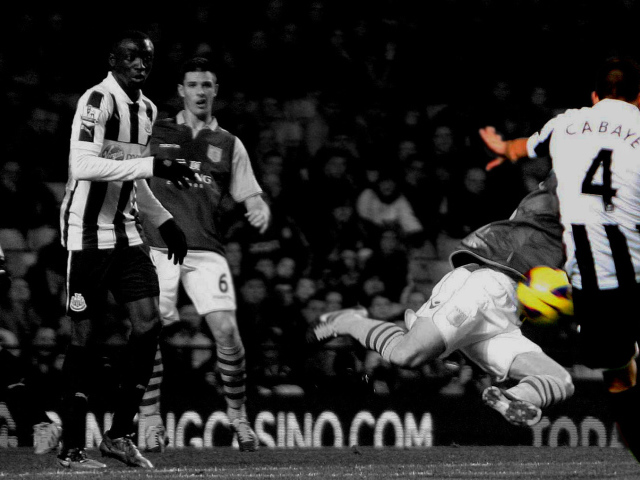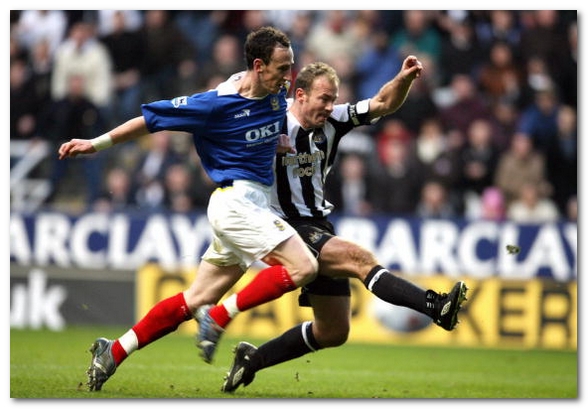
| Home |
Statistics |
History |
Decline
and relegation |
Colours |
Stadium |
Supporters
and rivalries |
|---|
The
two clubs became rivals in the Northern League. In 1889, Newcastle
East End became a professional team, before becoming a limited
company the following March.However on the other hand, Newcastle
West End were in serious financial trouble and approached East End
with a view to a take over. Newcastle West End were eventually
dissolved, and a number of their players and backroom staff joined
Newcastle East End, effectively merging the two clubs, with Newcastle East End taking over the lease on St James'
Park in May 1892.

Suggested
names included Newcastle F.C., Newcastle Rangers, Newcastle City
and City of Newcastle, but Newcastle United was decided upon on 9
December 1892, to signify the unification of the two teams. The
name change was accepted by the Football Association on 22
December, but the club was not legally constituted as Newcastle
United Football Club Co. Ltd. until 6 September 1895. At the start
of the 1893–94 season, Newcastle United were once again refused
entry to the First Division and so joined the Second Division,
along with Liverpool and Woolwich Arsenal. They played their first
competitive match in the division that September against Woolwich
Arsenal, with a score of 2–2.
Turnstile numbers
were still low, and the incensed club published a statement
stating, "The Newcastle public do not deserve to be catered for as
far as professional football is concerned". However, eventually
figures picked up by 1895–96, when 14,000 fans watched the team
play Bury. That season Frank Watt became secretary of the club,
and he was instrumental in promotion to the First Division for the
1898–99 season. However, they lost their first game 4–2 at home to
Wolves and finished their first season in thirteenth place.
The club found
it difficult to adjust to the Second Division and were nearly
further relegated in the 1937–38 season, when they were spared on
goal averages. However, when World War II broke in 1939, Newcastle
had a chance to regroup, and in the War period, they brought in
Jackie Milburn, Tommy Walker and Bobby Cowell. They were finally
promoted back to the First Division at the end of the 1947–48
season. During the 1950s, Newcastle won the FA Cup trophy on three
occasions within a five-year period, beating Blackpool in 1951,
Arsenal in 1952, and Manchester City in 1955.

However, after
this last FA Cup victory the club fell back into decline and were
relegated to the Second Division once again at the end of the
1960–61 season under the management of Charlie Mitten. Mitten left
after one season in the Second Division and was replaced by former
player Joe Harvey. Newcastle returned to the First Division
at the end of the 1964–65 season after winning the Second Division
title. Under Harvey, the club qualified for European competition
for the first time after a good run in the 1967–68 season and the
following year won the 1969 Inter-Cities Fairs Cup Final,
triumphing 6–2 over two legs against Hungary's Újpest in the
final.
Sir John Hall
became the club's chairman in 1992, and replaced Ardiles with
Keegan, who managed to save the team from relegation to the Third
Division. Keegan was given more money for players, and he brought
in Rob Lee, Paul Bracewell and Barry Venison and the club won the
then First Division Championship at the end of the 1992–93 season,
earning promotion to the then new Premier League. At the end of
the 1993–94 season, their first year back in the top flight they
finished in third, their highest league finish since 1927.The
attacking philosophy of Keegan led to the team being labelled "The
Entertainers" by Sky Sports.
Keegan took
Newcastle to two consecutive runners-up finishes in the league in
1995–96 and 1996–97, coming very close to winning the title in the
former season. This success was in part due to the talent of
players like David Ginola, Les Ferdinand and Alan Shearer, who was
signed on 30 July 1996 for a then world record fee of £15 million.
Keegan left Newcastle in January 1997 and was replaced by Kenny
Dalglish, however the club endured a largely unsuccessful season
with a 13th-place finish in the 1997–98 FA Premier League, failure
to progress beyond the group stages of the 1997–98 UEFA Champions
League despite beating Barcelona and group winners Dynamo Kiev at
St James Park as well as coming from 2–0 down to draw 2–2 with
Valery Lobanovsky's team in Ukraine and defeat in the 1998 FA Cup
Final.